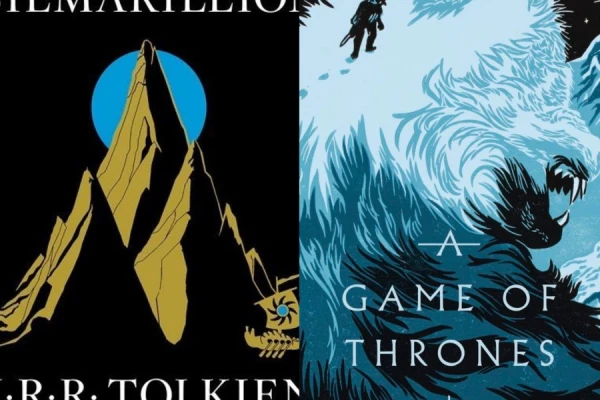Have you ever been moved by a story, as if it recognized the deepest parts of yourself? That is the undeniable power of fiction. Amid the overwhelming flow of instant information and entertainment, fiction is often seen as just a brief escape from reality. Yet, beneath the layers of words and imagination, literary works actually offer something far deeper: a mirror to reflect on who we are, where we come from, and where we are headed.
Why do humans so deeply need fictional stories? Isn’t reality pressing enough from all directions? It turns out that novels, short stories, and dramas have become meeting places between collective experience and personal imagination. Through the pages of fiction, we learn to recognize doubts, hopes, even wounds that might be difficult to express openly. Fiction, over time, often helps humans make sense of identity and history—both as individuals and society.
Fiction: A Window to a Broader World
When we turn page after page of a fictional story, we are essentially stepping into another world—a world born from the author's imagination, yet filled with familiar traces of reality. There is a reason why works like Siti Nurbaya, Laskar Pelangi, and To Kill a Mockingbird continue to inspire across generations. These narratives not only construct alternative realities but bring forth both local and universal experiences.
Through their characters, we see portraits of ordinary yet profoundly real human beings: the turmoil of love, fear, loss, and the struggle against injustice. Anyone can see themselves—or someone they know—within these stories. Even differing cultures, languages, and histories can intersect within a single narrative.
Seeking the Self Behind the Story
In many cultures, stories serve as a means to find meaning. In the oral traditions of the Nusantara, for example, folktales are not merely nighttime entertainment but lessons in ethics and shared values reflection. Similarly, in modern literature, fiction becomes a lens to understand one’s own identity. The protagonists struggling with internal or social conflicts often reflect struggles we experience daily, albeit in metaphorical or symbolic form.
Classic questions arise: Who am I among the countless characters in fictional worlds? Have my choices been right? What if I were the antagonist, not the hero? Fiction allows us to explore possibilities without actually having to risk everything in real life.
Literature as a Space for Empathy
The ability to understand others' perspectives is at the heart of empathy. Through fiction, readers are invited to cross cultural, linguistic, and belief boundaries. We can feel the suffering of minorities in metropolitan cities, the anxieties of a teenager in remote areas, and even the hopes of children in war zones. Reading is training in understanding feelings, a priceless skill in a world often divided and prone to miscommunication.
Literature, History, and Truth
There is a saying, "If you want to understand a nation, read its literature." Literary works, whether set against real or fictional historical backdrops, always contain traces of events and the spirit of the times. For example, when reading a novel about the struggle for independence, we may find not only historical facts but also the atmosphere of anxiety, solidarity, inner conflicts, and fragile memories often omitted from official accounts.
Fiction balances fact and emotion. It holds nuances that mere historical documents cannot capture. In contexts of social change—from colonialism to urbanization to globalization—literature narrates elements often overlooked in formal discourse. Through stories, we learn to remember and empathize with narratives different from our own experiences.
Contemporary Fiction: Identity and Diversity
Today’s global literature grows richer with new voices, including those previously marginalized. Local and diaspora writers rewrite history and identity from their unique perspectives. Themes like gender, minorities, and migration emerge through complex characters and plotlines—opening intercultural dialogues.
In Indonesia, authors such as Eka Kurniawan and Leila S. Chudori boldly explore politics, history, and collective trauma in narratives rooted locally yet accessible to global readers. Fiction becomes fertile ground to transform difference into strength rather than conflict.
When Readers Become Part of the Story
The relationship between readers and fiction is never one-way. Every reader brings background, beliefs, and personal experiences into their reading process. The same story speaks differently to each person. Herein lies the magic of literature: it is never truly finished. Readers always have room to interpret, reject, or even breathe new life into stories within their own lives.
As someone once said, "Everyone’s life story is a novel waiting to be written." Reading fiction sometimes reveals chapters that feel like our own—or gives us strength to write new chapters in our lives. Fictional stories, ultimately, are not just written and read but lived through everyday experience.
Conclusion
Lorem ipsum dolor sit amet, consectetur adipiscing elit, sed do eiusmod tempor incididunt ut labore et dolore magna aliqua. Ut enim ad minim veniam, quis nostrud exercitation ullamco laboris nisi ut aliquip ex ea commodo consequat. Duis aute irure dolor in reprehenderit in voluptate velit esse cillum dolore eu fugiat nulla pariatur. Excepteur sint occaecat cupidatat non proident, sunt in culpa qui officia deserunt mollit anim id est laborum.
Closing
Thank you for reading and framing meaning with us. If you have stories, experiences, or recommended fiction that touched your heart, do not hesitate to share. The literary world is a shared space where we cultivate empathy and mutual understanding across languages and cultural boundaries. See you in the next story—may fiction always inspire and refresh your journey.








Responses